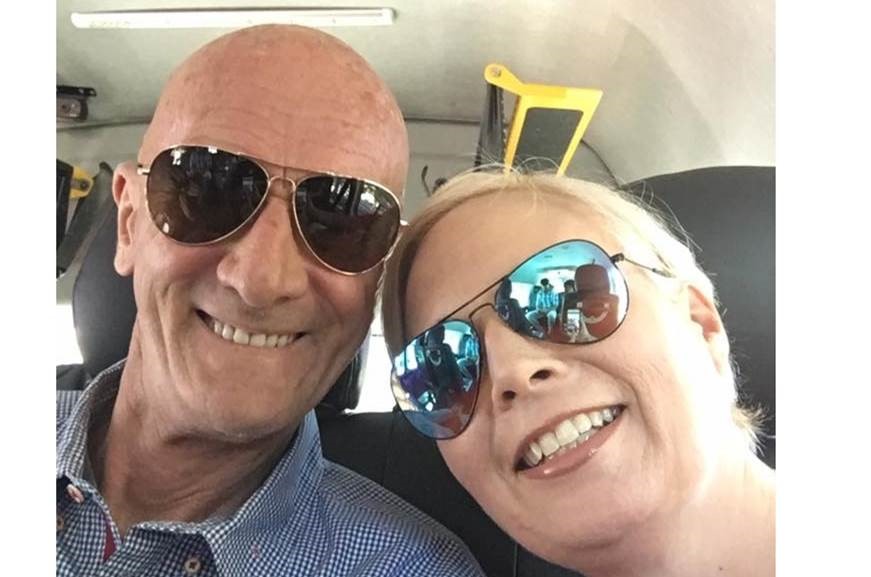
We were very pleased to find out Bruce was eligible for the new treatment. It meant that the treatment cycle was significantly reduced, given that 15 lesions were found on the brain.
Continue reading »

Continue reading »
New research suggests that Whole Brain Radiation Therapy (WBRT) is of little benefit to people whose lung cancer has spread to the brain, even though it is used widely for this indication. The new study was presented in September 2016 at the European Respiratory Society meeting in London.
Continue reading »
Research using a second-generation androgen-receptor targeting agent is now underway on the male patient population that is at risk of dying of prostate cancer called castrate-resistant prostate cancer (CRPC).
Continue reading »
Yesterday was Universal Children’s Day, giving us pause to celebrate the courage and inventiveness of children, even when fighting cancer. Radiation specialists at Clatterbridge Cancer Center in the U.K. built a small radiography machine out of LEGO® bricks to help children understand how the technology works and treats their cancer.
Continue reading »
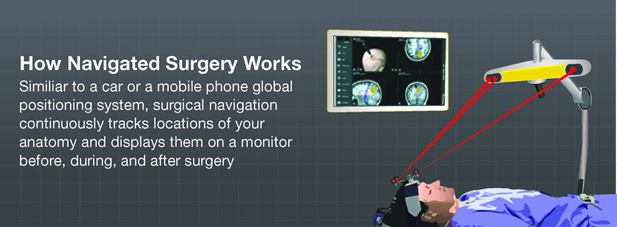
Patients in Malta have traditionally had to travel to London, England to gain access to advanced medical equipment like image guided surgery systems.
Continue reading »
Gord Downie, lead singer of the Canadian rock band, the Tragically Hip, was diagnosed with a glioblastoma—an aggressive form of brain cancer—in late 2015. The band performed one final tour in August 2016 with Downie’s lead physician, James Perry, MD, at his side the entire tour.
Continue reading »
Metastatic breast cancer is the most advanced stage of the disease, also called Stage IV, where the cancer has spread to other organs in the body.
Continue reading »
As reported in the Journal of Clinical Oncology, researchers are conducting experiments that involve injecting triple-negative breast cancer (TNBC) with a chemical compound.
Continue reading »
The social media phenomenon Humans of New York (HONY) teamed up with the Department of Pediatrics at Memorial Sloane Kettering Hospital, also in New York, last year to raise over $4 million in just three weeks for pediatric cancer research.
Continue reading »
Published in July in Nature, new research has identified nearly 100 previously unknown regions of the brain. This is being considered a major breakthrough in the neurosciences, offering a deeper insight into the human mind.
Continue reading »
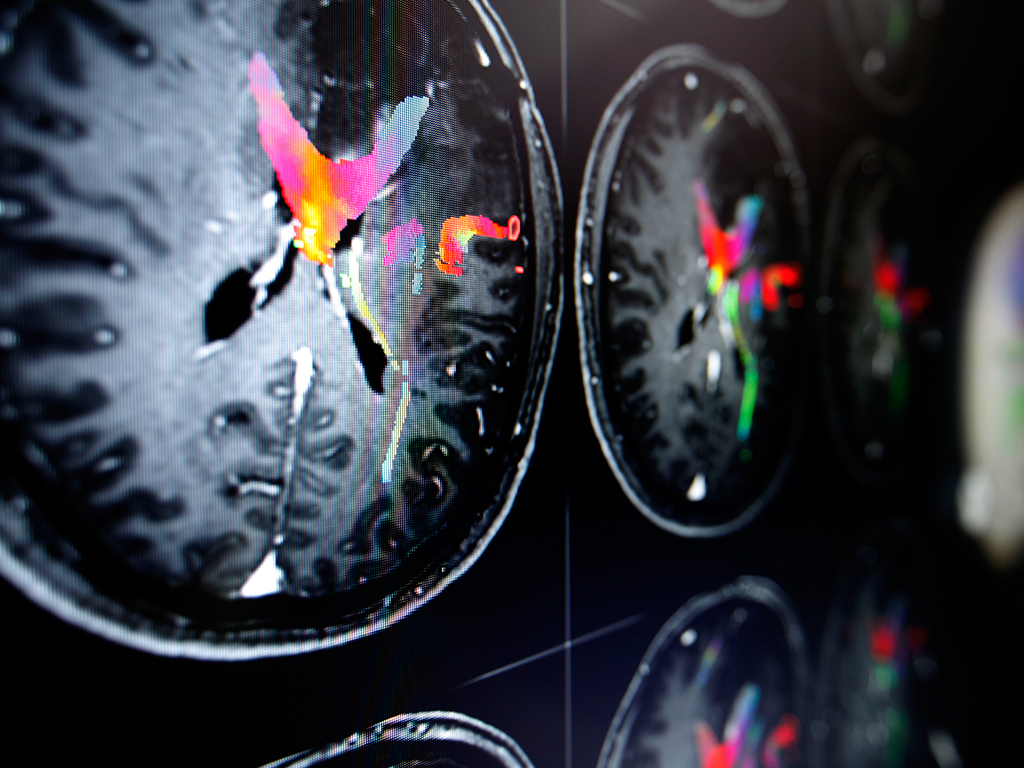
Each August, the American Association of Neurosurgeons (AANS) observes Neurosurgery Awareness Month. This year, the AANS is focusing on stroke.
Continue reading »
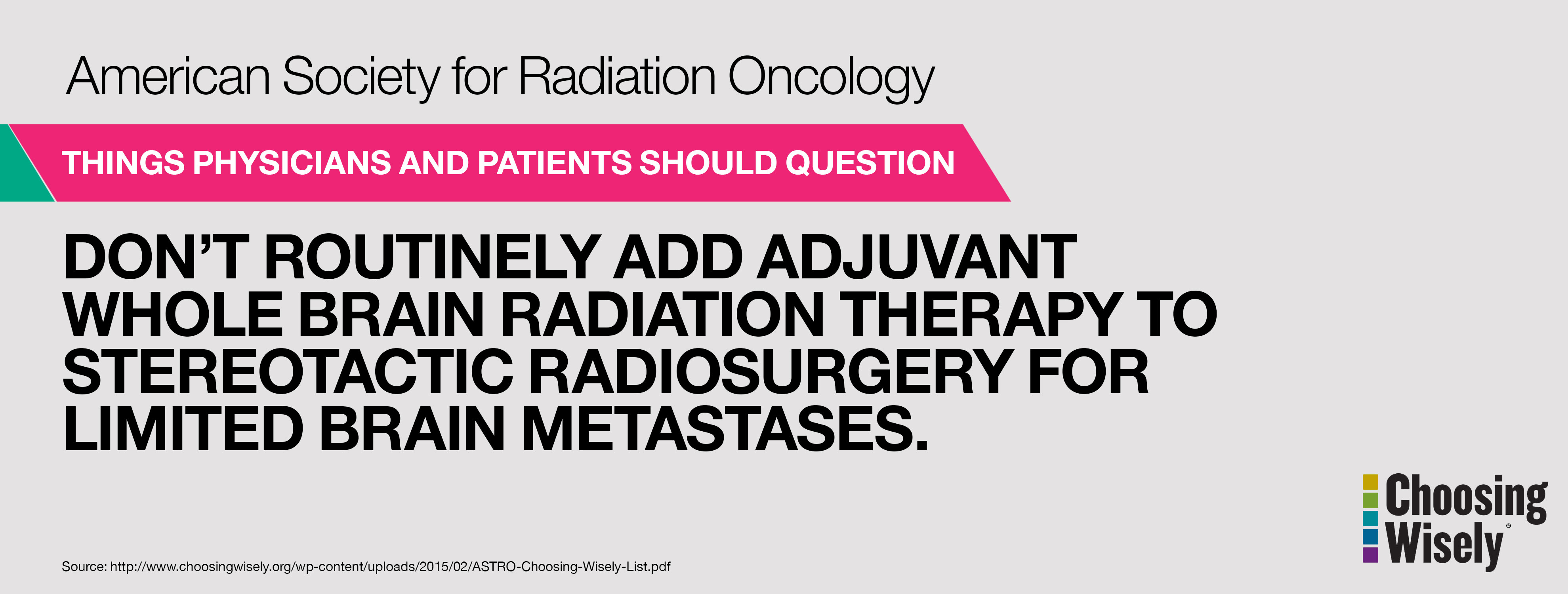
Choosing Wisely is a United States-based health educational campaign started in 2012 and led by the ABIM (American Board of Internal Medicine) Foundation. The campaign seeks to improve doctor–patient relationships and promote patient-centered care by informing patients and physicians about overutilization of medical resources.
Continue reading »
A recent study published in the Journal of the American Medical Association titled “Effect of Radiosurgery Alone vs Radiosurgery With Whole Brain Radiation Therapy on Cognitive Function in Patients With 1 to 3 Brain Metastases: A Randomized Clinical Trial” has shown that the use of stereotactic radiosurgery (SRS) alone, compared with SRS combined with whole brain radiation therapy (WBRT), resulted in less cognitive decline three months after treatment in brain metastases patients.
Continue reading »
If you have been diagnosed with cancer, it is important for you and your support system to be familiar with the wide range of treatments available to you. While this can be overwhelming, talking with your doctor can help you understand the options in order to make the best, most informed decision for your cancer and your lifestyle.
Continue reading »
There is so much concern and attention surrounding player safety and head trauma in contact sports, that provinces in Canada and many U.S. states are adopting stricter laws surrounding contact and return to play.
In 2014, The National Federation of State High School Associations (NFHS) finalized its position paper from the NFHS Concussion Summit Task Force regarding minimizing the risk of concussions and head impact exposure in high school football.
Continue reading »
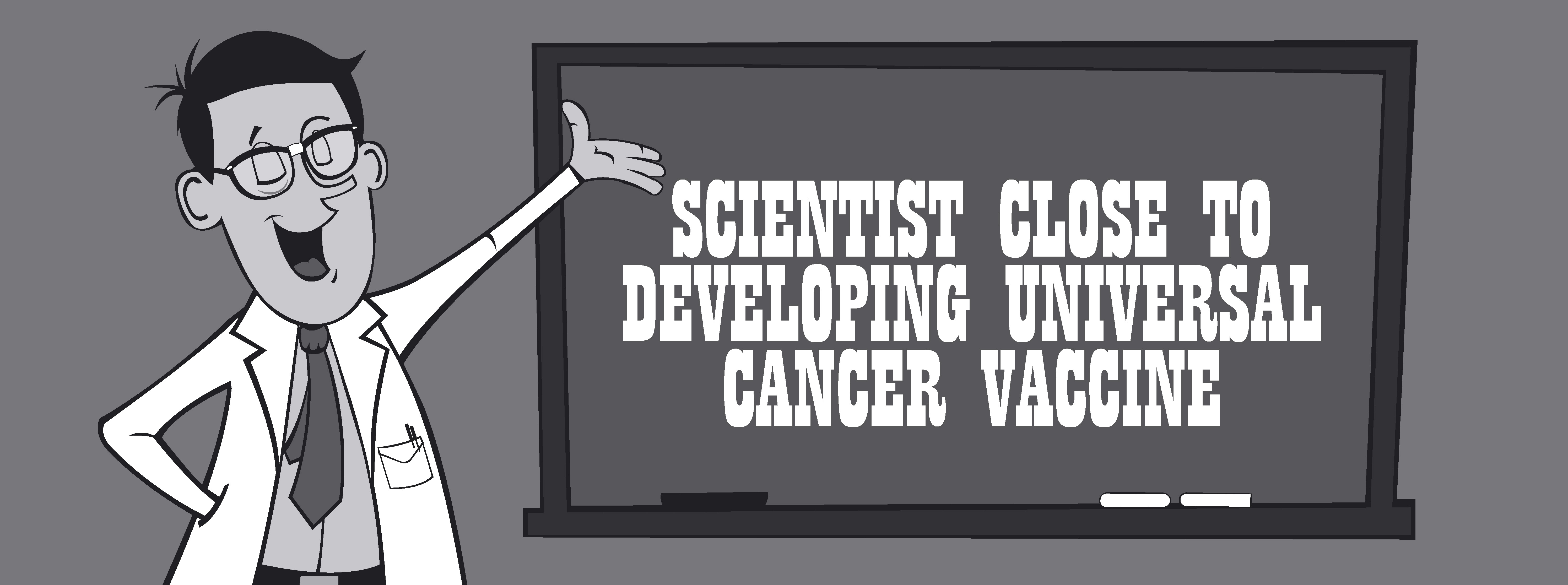
As reported in Nature, scientists at Johannes Gutenberg University of Mainz in Germany have conducted research that shows potential for the development of a cancer vaccine that may work for any type of tumor from any type of cancer.
Continue reading »
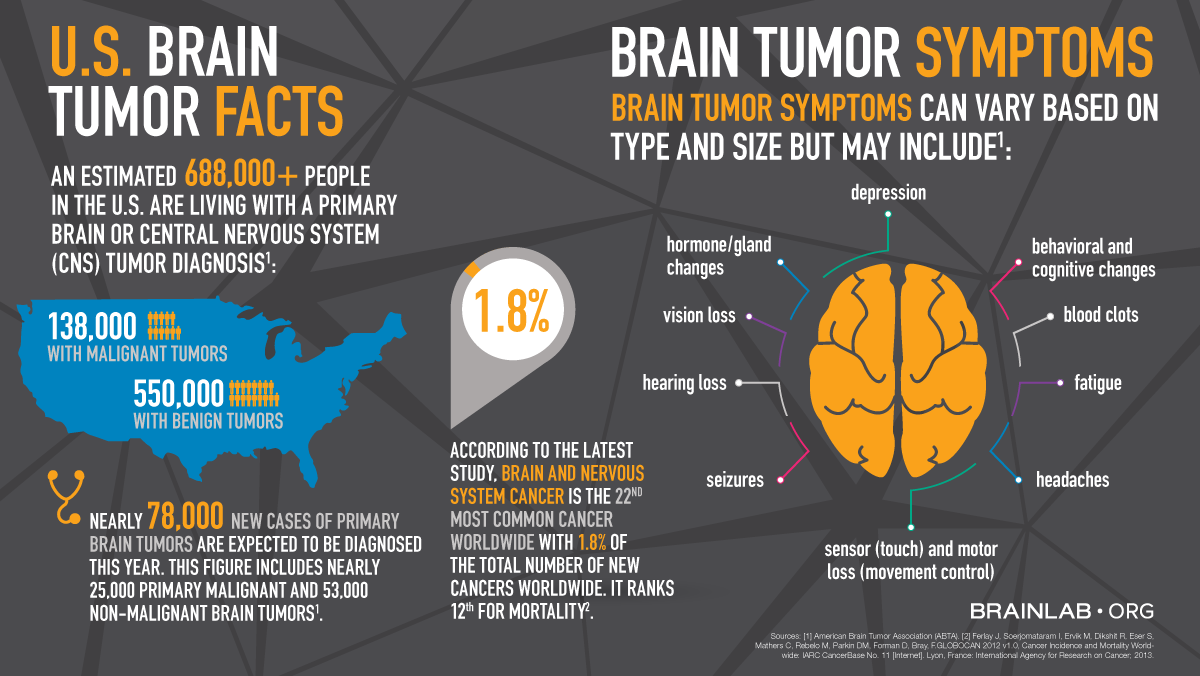
Did you know that nearly 700,000 people in the United States alone suffer from a primary brain or central nervous system tumor? May is Brain Tumor Awareness Month! Learn more about brain tumors with our animated infographic >> https://youtu.be/tiBR-7xpUFE
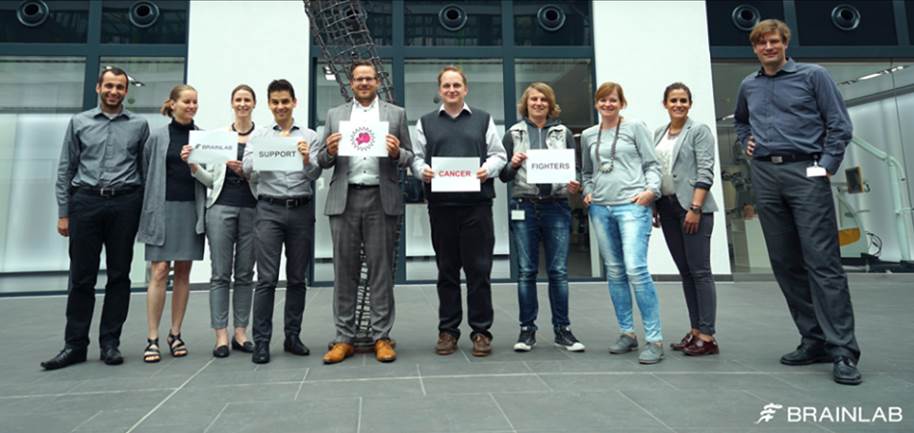
By wearing gray in the month of May, you show your support to all those fighting brain cancer. Brainlab and Brainlab.org celebrated Wear Gray Day in the office and the field. Visit our Facebook page to see how Brainlab supports Brain Tumor Awareness Month! >> http://brai.nl/7Pwf300ijsq
Continue reading »
In the first update since 2007, the World Health Organization (WHO) offers a new integrated classification of tumors of the central nervous system. The 2016 World Health Organization Classification of Tumors of the Central Nervous System uses molecular parameters in addition to histology to define many tumor entities, ushering in a new era of brain tumor diagnosis and treatment. The hope is that this revised classification will facilitate new studies and ultimately lead to improvements in the lives of patients with brain tumors.
Continue reading »
Harnessing the power of the human immune system, Duke University is blazing a 21st century trail that may just offer the big leap forward in cancer treatment that we have been hoping to achieve since the advent of radiation therapy in the late 19th century.
Learn more >> http://www.cbsnews.com/news/polio-cancer-treatment-duke-university-60-minutes-scott-pelley/
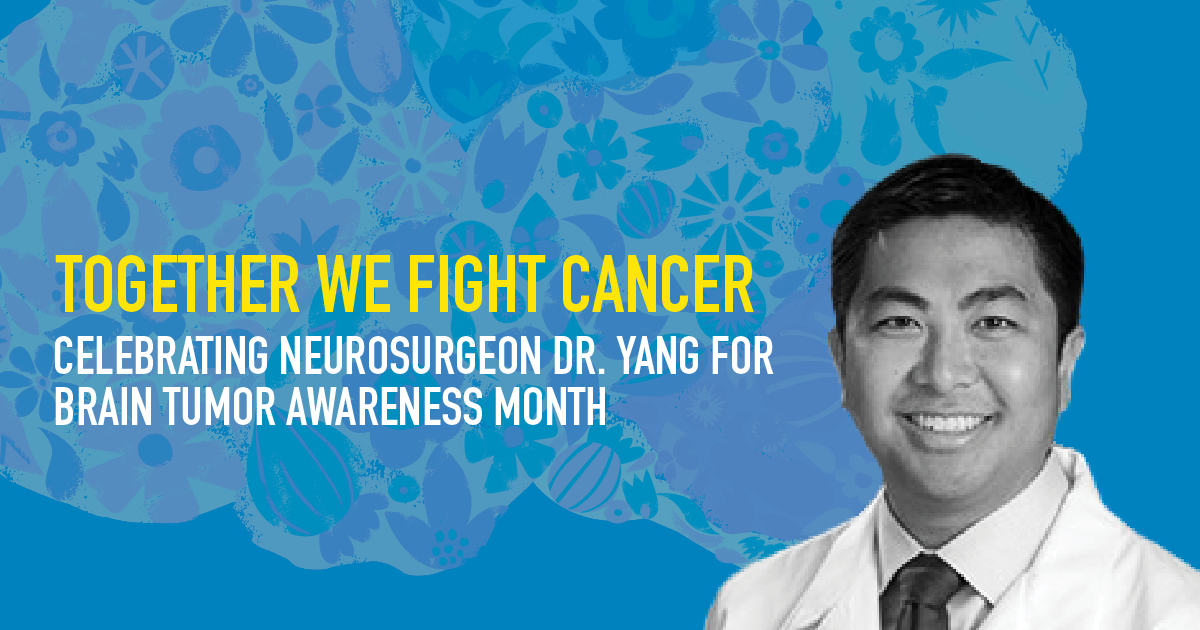
Within moments of speaking with Isaac Yang, MD, it is clear he has excitement and passion for patients and patient education. Dr. Yang, a neurosurgeon specializing in the surgical treatment and clinical outcomes of adult brain tumors at UCLA, is an active advocate for patient education and provides many educational resources to empower patients and help them understand their treatment options.
Brainlab.org had the chance to sit down with Dr. Yang to learn more about his passion for helping patients with brain tumors, providing credible resources to educate them through their treatment process and using Brainlab technology.
Continue reading »
In 2015, there were an estimated 11,880 new cases of glioblastoma multiforme brain tumors according to Ohio State University Wexner Medical Center. Glioblastoma multiforme is considered the most lethal and common form of brain tumors with overall survival averaging 12 to 15 months.
Continue reading »

This year, Brainlab sponsored the 2016 Chicago BT5K Breakthrough for Brain Tumors Run & Walk, the American Brain Tumor Association’s signature fundraising program. This year, the ABTA is hosting 5K events in eight states with the goal of raising $2 million for brain tumor research, patient programs and support services.
Continue reading »
Food is not only important to fuel the body; it can be ‘a powerful arsenal against disease,’ according to Lynda McIntyre, R.D., L.D., an oncology nutrition specialist with Johns Hopkins Medicine. She encourages patients to ‘eat a rainbow’ and add spice to their diets. Read more here >> http://hocowellandwise.org/2014/09/power-food-cancer-prevention/
An organization with a long history of helping people, especially kids with disabilities. March is Easter Seals month! Easter Seals offers people information, resources and programs for children, young adults and healthy aging. Find out if Easter Seals could help you overcome challenges and maintain healthy brain function. >> http://www.easterseals.com/our-programs/brain-health/
There may be bright side to suffering from allergies, asthma and eczema. According to a new study, people who have these illnesses are less likely to suffer from glioma. Glioma is a common type of primary brain tumor, accounting for about 33% of primary brain tumors. Gliomas originate in the glial cells in the brain.
Continue reading »
Biomedical engineers and physicians at Johns Hopkins are reporting successful trials of a mind-controlled prosthetic hand. By mapping the patient’s brain and tracking specific parts of the brain that move the fingers, the scientists were able to program the prosthesis to move the corresponding finger.
Continue reading »
Researchers gathered at the World Medical Innovation Forum in Boston discuss the sci-fi future of medicine. >> http://medcitynews.com/2015/04/disruptive-technologies-neuroscience-watch/?rf=1
March 14-18 is Brain Awareness Week. The Dana Foundation, dedicated to advancing brain research and educating the public, promotes partner events surrounding Brain Awareness Week. You can search events near you that promote Brain Awareness here. >> http://www.dana.org/baw/calendar/results.aspx

The Congressional Brain Injury Task Force (CTITF) has designated March 16, 2016 as Brain Injury Awareness Day on Capitol Hill. Brain Injury Awareness goes on the whole month of March and the Brain Injury Association of America encourages people to offer help to a family caregiver. >> http://www.biausa.org/announcements/help-a-family-caregiver-during-brain-injury-awareness-month-2016
Patient safety during hospital stays is of great concern to healthcare providers and patients and their caregivers should be vigilant as well. Patient Safety Awareness Week is this week and we want to help you develop strategies for a safe hospital stay.
Continue reading »
The American Brain Tumor Association has published a 50 page report that gives an in-depth statistical analysis of brain and central nervous system tumors in adolescents and young adults.
Continue reading »
Deep brain stimulation is a nonsurgical treatment aimed to reduce tremors and stop involuntary movements associated with movement disorders like Alzheimer’s Disease.
Continue reading »
There is another promising study linking cancer treatment with our immune system.
Continue reading »

A study has shown that a new therapy using a patient’s white blood cells has helped more than 90% of terminally ill patients go into remission. The cells were taken from each patient then modified in a lab before they were put back into the body. While some impressive results have been achieved, two patients did die from an extreme immune response.
Continue reading »
According to one study, it is possible for the brain to repair itself…with some help.
Continue reading »
Regardless of how your Valentine’s Day turned out, it’s always a good time to take care of your heart! Visit the American Heart Association’s website for everyday tips for a healthy heart. Read more >> http://brai.nl/XQTa0
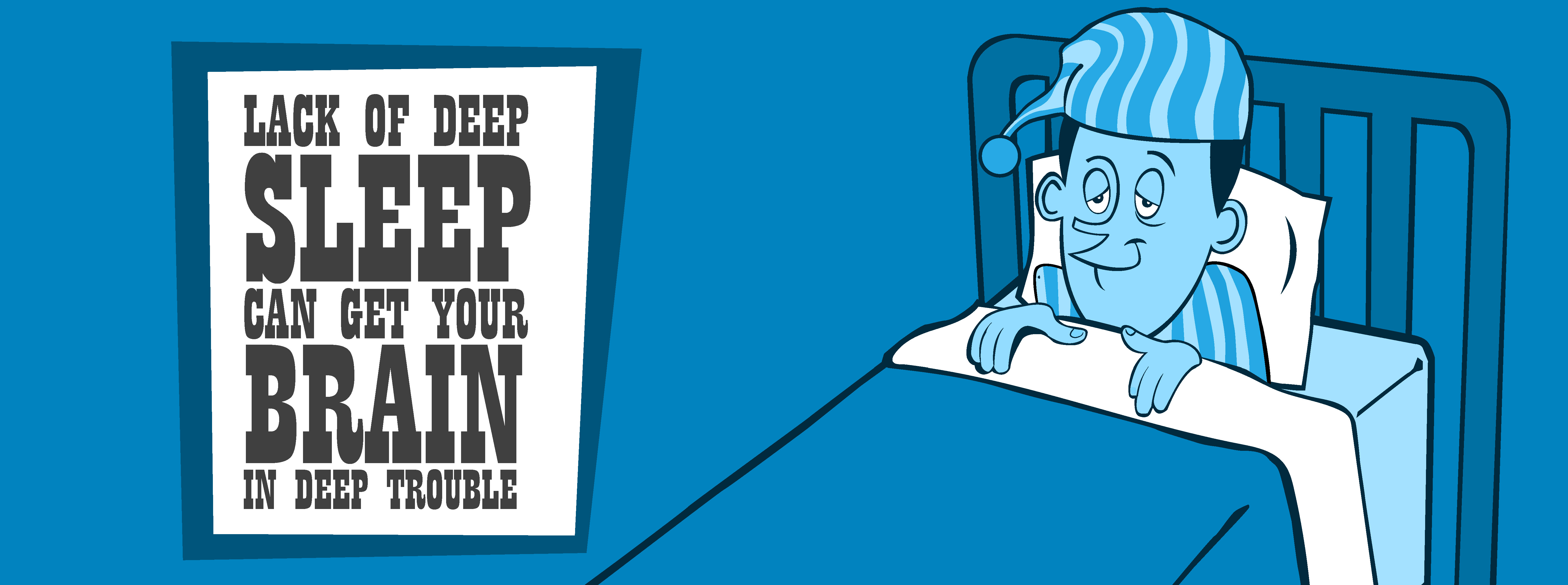
A brain scientist at Oregon Health & Science University in Portland has made a connection between lack of sleep and Alzheimer’s disease.
Continue reading »
A team from the Queensland Brain Institute (QBI) has come up with a pretty promising treatment for removing the build-up of plaques in an Alzheimer’s patient’s brain, which cause the disease.
Continue reading »
A global event taking place every year on February 4, World Cancer Day unites the world’s population in the fight against cancer. It aims to prevent millions of deaths each year by raising awareness and education about the disease, pressing governments and individuals across the world to take action.
Continue reading »
Researchers, who have been analysing the DNA of brain tumors, found that brain tumors grow very quickly without the mutations that cause growth in other types of tumors.
Continue reading »

Here at brainlab.org, we are always looking for ways to improve our site and provide additional educational resources for patients.
Continue reading »
Researchers have been testing electromagnetic field therapy for patients with glioblastoma, one of the most severe types of brain cancer in adults, who are undergoing routine chemotherapy. These electromagnetic fields, known as Tumor-treating fields, or TTFields, work to disrupt the cancer cells’ growth.
Continue reading »
Researchers have created ‘smart fat cells’ that can help detect smaller, early-stage gliomas in mice before they become deadly. These tiny cells cross the blood-brain barrier, which protects the brain by blocking most molecules from entering it, and seek out the glioma tumor cells. Since these fat cells are also laded with a ‘light up’ agent, they show up on MRI scans, showing where the developing tumor is growing.
Continue reading »
It feels like everywhere we turn we hear about various cancers affecting numerous parts of the body: brain, blood, lymph nodes, lungs, bone, etc. But when was the last time you heard about cancer in one’s heart? Due to its muscular, non-fatty nature along with significant assistance from the pericardium (the membrane around your heart) it is extremely rare for the heart to develop a tumor. Learn more here >>
http://www.medicaldaily.com/rhabdomyosarcomas-and-other-heart-cancers-are-so-extremely-rare-its-if-they-didnt-310714
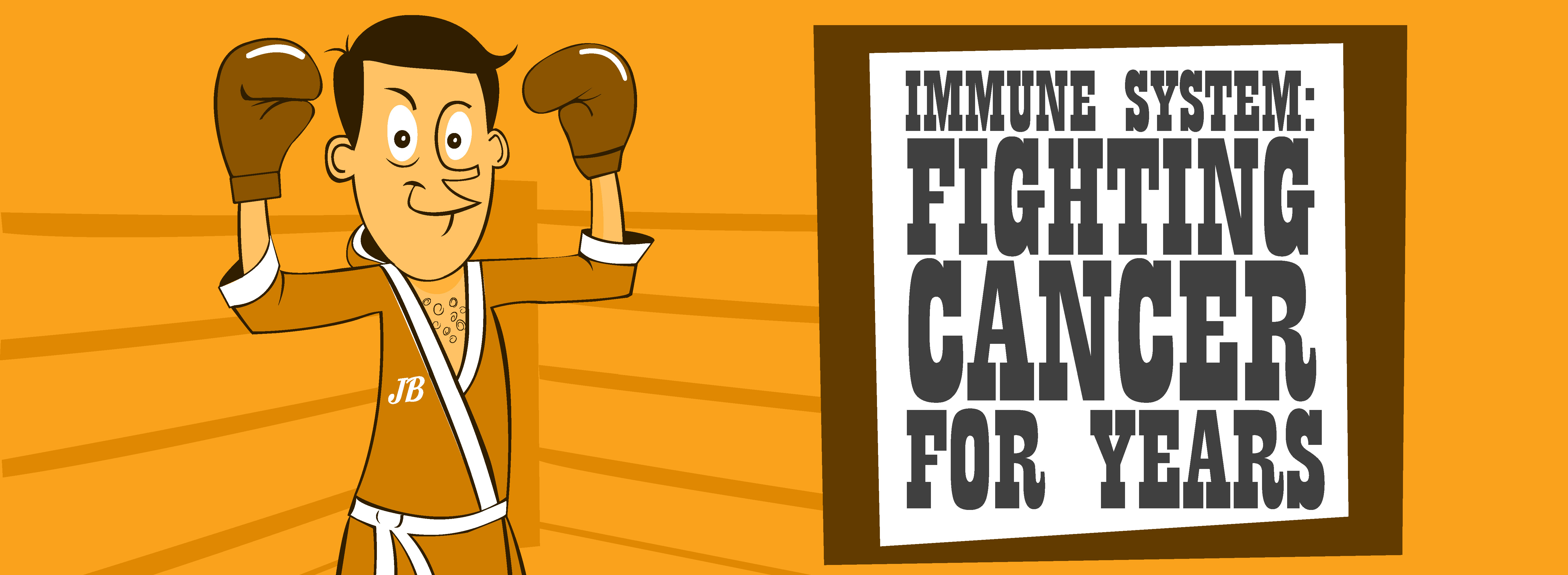
The idea that one can fight cancer by boosting the immune system, known as immunotherapy, is nothing new and in fact dates back to the late 19th century.
Continue reading »
Researchers studying the DNA of brain cancer cells have possibly discovered a new reason that these cells grow uncontrollably.
Continue reading »

Initial research shows that when a patient undergoes ‘hypnosedation’ in preparation for awake surgery for gliomas, they are more relaxed and experience less psychological trauma.
Continue reading »
Within the last 20 years, we have seen an increase in the importance of patient satisfaction, and how this importance has impacted the overall healthcare space.
Continue reading »
It may sound strange, but scientists have discovered that if you put brain tissue in an expanding gel—similar to that found in diapers—the brain tissue is magnified, making it easier to see and study the tissue.
Continue reading »
A new study suggests that musical training can enhance the functional role of brain rhythms. The study points to a newfound role the brain’s cortical oscillation plays in the detection of musical sequences and suggests that musicians have more potent oscillatory mechanisms than non-musicians. Read more about the findings here >> http://www.biosciencetechnology.com/news/2015/10/musical-rhythms-brain

The average life expectancy of a patient diagnosed with glioblastoma is less than 15 months and no effective treatments yet exist.
Continue reading »
A recent study shows that eating a diet of more fish and plant-based foods may equal five fewer years of brain shrinkage.
Continue reading »

The risk for a heart attack is greater in people who have total hip or knee replacement surgery during the first month following surgery.
Continue reading »
Knee replacement has become the leading inpatient surgery performed on adults 45 and over. More and more baby boomers are getting their knees replaced at younger ages and at a faster rate than ever before in the US In 2000, the average knee replacement patient was 69 years old but by 2010, the age dropped to just over 66. Read more about the US study here >> http://www.webmd.com/pain-management/knee-pain/news/20150902/more-americans-getting-knees-replaced-and-at-younger-ages
47 million people are living with Alzheimer’s and other dementias worldwide. The Alzheimer’s Association uses the month of November to share their new and best resources, plus ways where people can help raise awareness for Alzheimer’s and honor millions of caregivers. Find out more on their website >> http://www.alz.org/honor/honor.asp
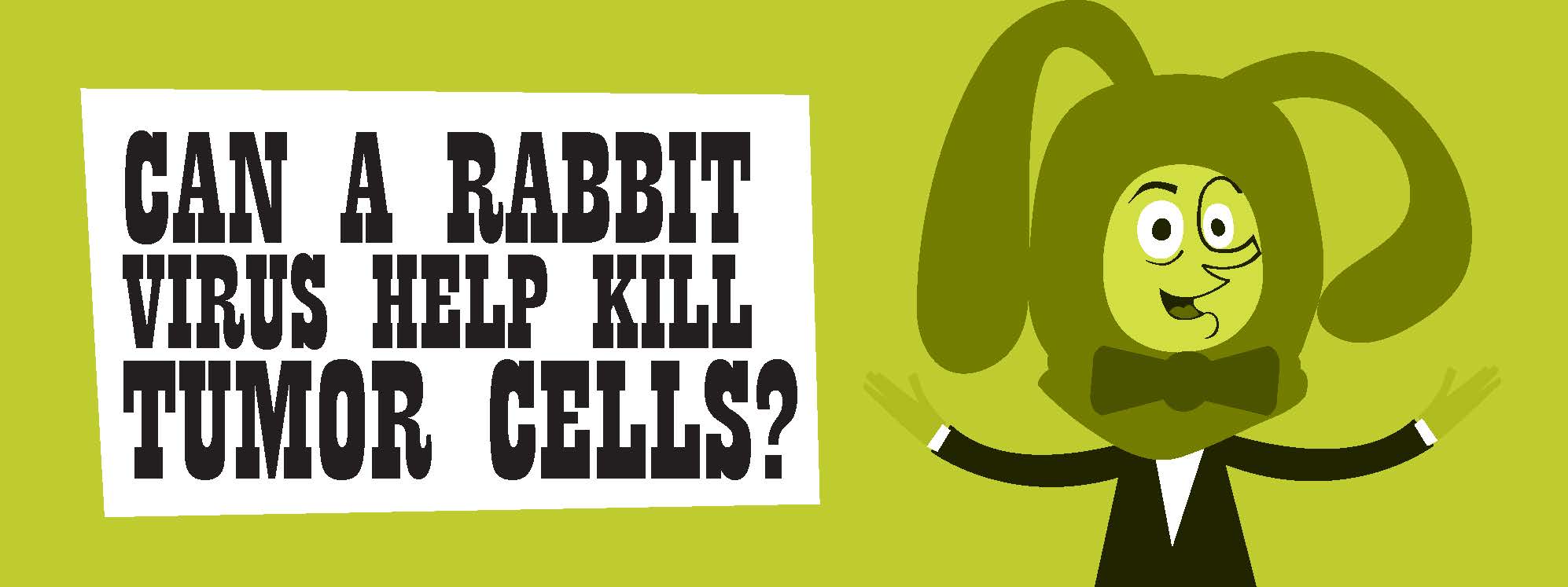
The myxoma virus, found in wild rabbits in Australia and parts of Europe, shows promise in helping to kill brain tumor cells. When the virus is paired with existing drugs to fight glioblastomas, the effectiveness of killing the brain tumor cells is increased. Learn more here >>http://www.abta.org/secure/virus-drug-combination-shows.html
During a new study at the Washington University School of Medicine in St. Louis, doctors have managed to restore some functions in the hands and arms of quadriplegic patients. Surgeons have been able to accomplish this by rerouting still-healthy nerves to damaged ones in the patient’s arms and hands. Read more about this pioneering new study here >> http://www.iflscience.com/health-and-medicine/pioneering-surgery-restores-hand-and-arm-movement-quadriplegics
Another disease is making headlines as a potential cure for cancer. Scientists are claiming that when malaria proteins are attached to cancer cells, the tumors could be burrowed into and destroyed. Read more about this new trial treatment here >> http://www.independent.co.uk/news/science/cure-for-cancer-might-accidentally-have-been-found-and-it-could-be-malaria-a6693601.html
Not all brain tumors are alike so classifying them can be tricky. In recent studies, doctors are analyzing the DNA markers of some brain tumors to help accurately identify them.
Continue reading »
Not all brain tumors are alike so classifying them can be tricky. In recent studies, doctors are analyzing the DNA markers of some brain tumors to help accurately identify them.
Continue reading »
Scientists have not yet found a way to measure the pressure of a patient’s brain without drilling a hole in their skull. The eye, however, is directly linked to the brain by the optic nerve, which sits at the back of the eyeball. Using an ultrasound probe over the eye is a non-invasive method to identify the pressure in the brain. Read more about this technology here >> http://gizmodo.com/how-neurosurgeons-can-now-look-at-your-brain-through-yo-1737281372
There are many ways, today and every day, to learn about stroke and help put in motion the power to end stroke (http://powertoendstroke.org/). Join the American Stroke Association today at 12pm CT for #strokechat. Visit http://www.strokeassociation.org/STROKEORG/ to learn how you can Sing to End Stroke in conjunction with the American Stroke Association and iHeart Radio.

Looking for a good book to curl up with this fall season? Here is a stimulating selection from neuroscientist Sam Harris, meant to enrich any human life. Check out the list here >>https://www.brainpickings.org/2015/07/21/sam-harris-reading-list/
At a recent Society for Neuroscience meeting, researchers reported that during a pilot study for a drug used to treat leukemia, 11 out of 12 patients who were given a small dose had improvement in mental function and movement. For several of the patients, improvements were dramatic.
Continue reading »
October is Spina Bifida Awareness Month and October 25 has been designated World Spina Bifida and Hydrocephalus Day by the International Federation for Spina Bifida and Hydrocephalus (IFSBH).
Continue reading »
Symptoms of glioma brain tumors typically appear only three months before the tumor is diagnosed, but new research fromNorway reveals a method to detect signs of a brain tumor up to 5 years before its diagnoses. Learn more about the study here >>
http://health.usnews.com/health-news/articles/2015/09/18/signs-of-brain-tumor-may-show-in-blood-years-before-diagnosis

The third week of October is dedicated to awareness about major public health issues while promoting health education with consumers. Each day of National Health Education Week offers a different theme filled with events, webinars and other fun and educational activities. Check it out here >> https://www.sophe.org/nhew.cfm.
Ever since ‘Men Are from Mars, Women Are from Venus’, the way men and women think has been hotly debated. Want to find out how male or female your brain is? Take the test and find out here >>
http://brainfall.com/quizzes/how-malefemale-is-your-brain/
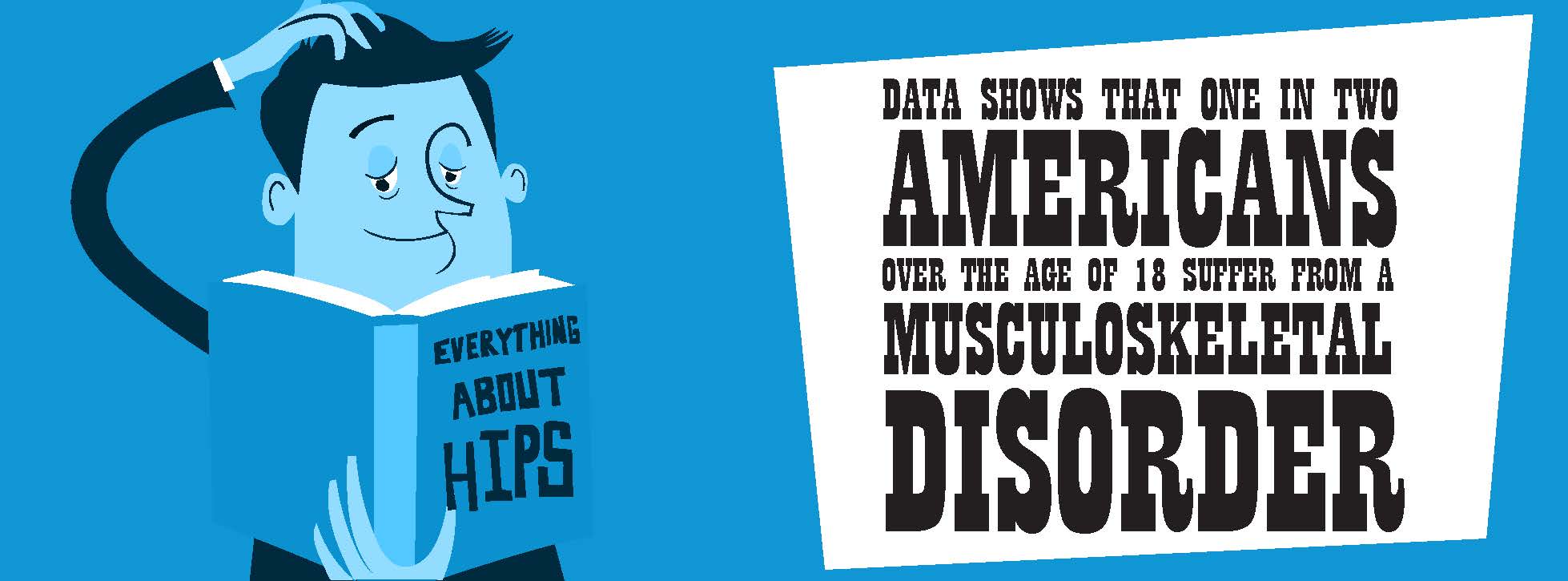
The United States Bone and Joint Initiative (USBJI), part of the Global Alliance for Musculoskeletal Health Bone and Joint Health, is dedicated to action and awareness during the week of October 12-20. Data shows that one in two Americans over the age of 18 suffer from a musculoskeletal disorder including arthritis, back pain, fracture, osteoporosis and sports trauma, just to name a few. For more information, visit >> http://www.usbji.org/.
Earlier this week, the U.S. Food and Drug Administration approved the Optune device, which treats patients with glioblastoma multiforme (GBM).Treatment with this device is in addition to standard treatments such as surgery, radiation therapy and chemotherapy. “White the treatment is not a cure, it can increase survival time by months” said William Maisel, M.D., M.P.H., acting director of the Office of Device Evaluation in the FDA’s Center for Devices and Radiological Health. Read more here >> http://www.fda.gov/NewsEvents/Newsroom/PressAnnouncements/ucm465744.htm
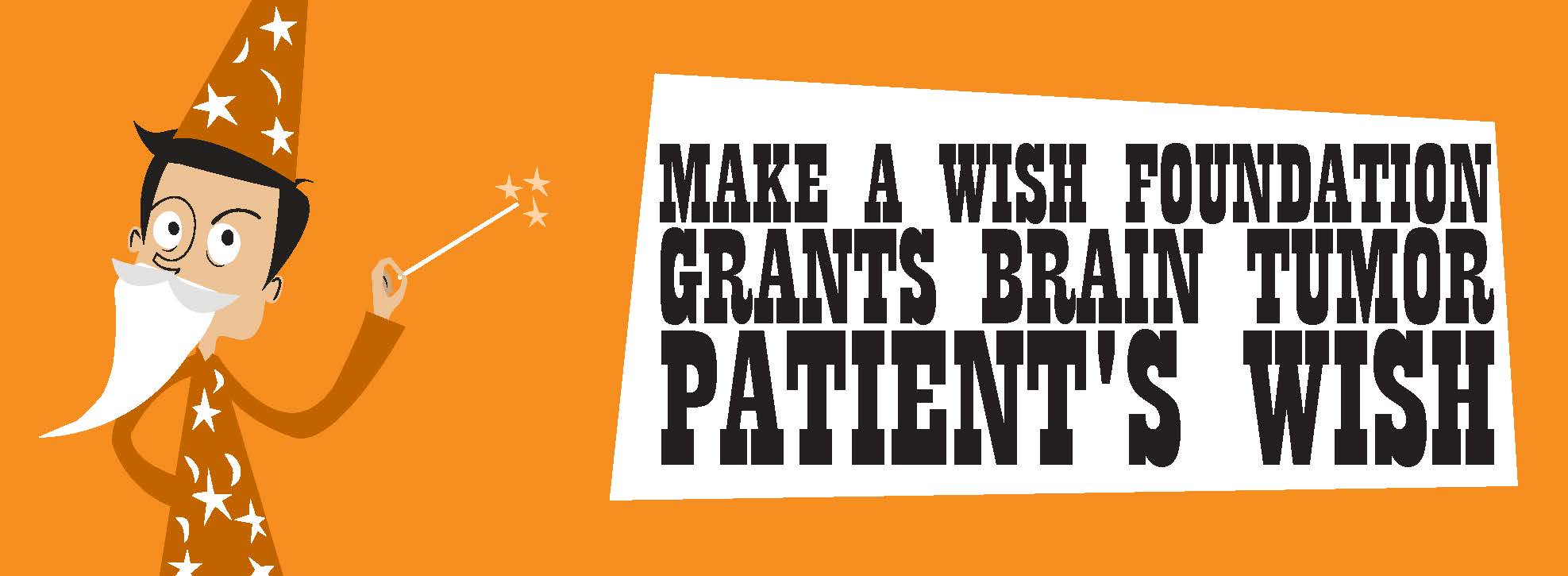
Dreams really do come true with the help of Make-A-Wish Foundation.
Continue reading »
There have been many studies that show the negative health effects of being over-weight, and now new studies are linking that to brain tumors. The studies show that overweight patients were 21 percent more likely to develop a meningioma tumor than normal-weight individuals, and obese patients were 54 percent more likely to develop one. Learn more here >>
http://www.livescience.com/52198-meningioma-brain-tumor-obesity.html
Whether you are working to stay healthy during breast cancer treatment, keeping up with healthy breast exams or struggling to meet the demands of every day life while undergoing treatment, the apps described here may help >> http://www.healthline.com/health/breast-cancer/top-iphone-android-apps.

The venom of an aggressive Brazilian wasp, polybia paulista, has been discovered to punch holes in bacteria and cancer cells, causing them to ‘leak’ to death and leaving the red blood cells unharmed. Scientists, however, are still trying to understand why the venom has this effect.
Continue reading »
Do you know your body? Experiencing more headaches than usual?
Continue reading »
From October 5 – 11, The Pablove Foundation has a team of cyclists that participates in ‘Pablove Across America’, a cycling event that strives to support childhood cancer. Learn more about the charity event here >>http://www.pablove.org/pablove-across-america/
Health blogs can be a great source of information, if you can find the right ones to read. Since September is Prostate Cancer Awareness Month, check out this list of the best prostate cancer blogs of the year identified by Healthline.
Continue reading »

On October 16th, thousands of people across the world will be fashioning a bald cap—or even shaving their heads completely!—to show their support for friends and family who have battled cancer.
Continue reading »
The survival rate for children with cancer is 80% in high income countries, but only 5% in low income countries. World Child Cancer’s mission is to improve cancer diagnosis, treatment and care for children across the developing world by training doctors and providing aid. To learn more, visit their website >> http://www.worldchildcancer.org/
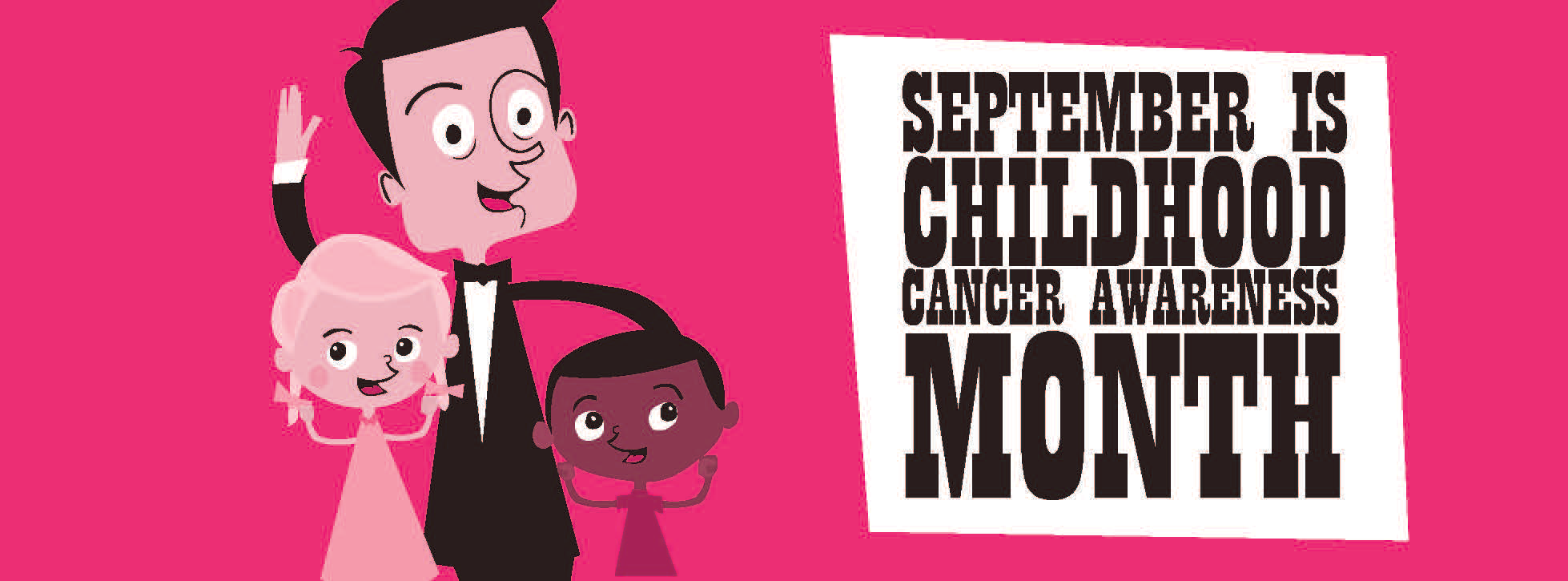
Did you know that in the U.S. 15,780 children and young people under the age of 21 are diagnosed with cancer every year?
Continue reading »
A new technique for the treatment of glioblastoma, a common and life-threatening brain tumor, has been shown to disrupt the cell-to-cell communication which allows the cancer to spread. The study, conducted at the University of Florida Health has shown that slowing down the spread resulted in a 50% increase in survival time in mouse models.
Continue reading »
Data presented by the American Society of Clinical Oncology has shown that stereotactic radiosurgery and close monitoring are recommended to patients with one to three newly diagnosed brain metastases to better preserve quality of life and brain function. Read a summary of the study here >> http://www.oncologynurseadvisor.com/asco-2015-annual-meeting/brain-metastases-newly-diagnosed-radio-surgery-monitoring/article/417979/

Whole Brain Radiation Therapy has long been the traditional treatment for brain metastases, forcing patients to strike a balance between the disease they are fighting and a treatment with potentially detrimental consequences. A study done by the American Society of Clinical Oncology aims to determine the pros and cons of this treatment for brain metastases.
Continue reading »
In a discovery that could change the way prostate cancer is treated, scientists at Cancer Research UK say that it could actually be five different diseases which can be determined by the cancer’s genetic make-up.
Continue reading »
According to Mayo Clinic, we can. A study published in Nature Cell Biology states that cancer cells can be turned back into normal cells.
Continue reading »

The debate surrounding the connection between cell phone use and brain tumors is ongoing as evidence is still inconclusive. Studies conducted by the World Health Organization (WHO) and other organizations over the last few years have strivedto understand if there is a connection between cell phones and brain cancer.
Continue reading »
The fast-growing app community is a great resource for patients and caregivers looking for support during this life-changing journey. The sheer number of apps can be overwhelming. Start by exploring some of these free apps to get a feel for what you like and need in online support.
Continue reading »
A man in India suffering from Tourette’s syndrome, a rare neurological disorder characterized by involuntary movements and vocalizations know as tics, has undergone successful functional neurosurgery to control his disorder.
Continue reading »
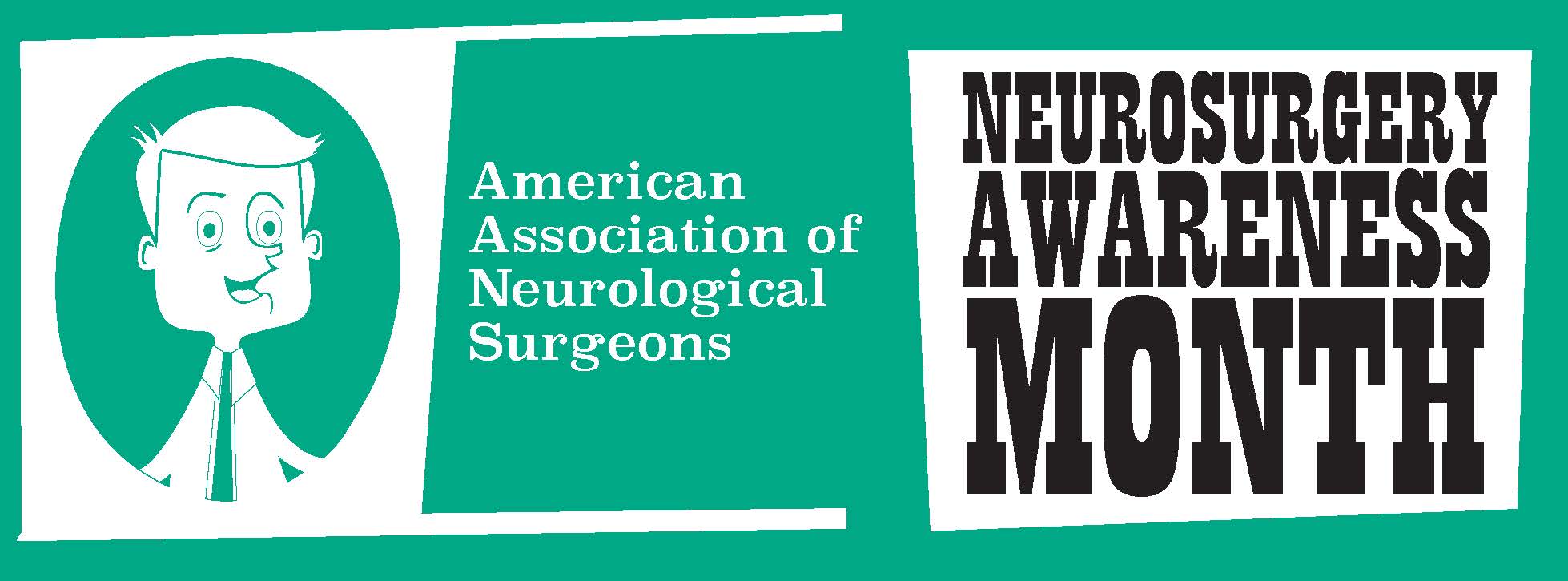
This year, the American Association of Neurological Surgeons is focusing on celebrating neurosurgeons themselves during the month of August. You can explore many interesting, uplifting and informative stories, essays and abstracts that help to demystify the neurosurgeon while highlighting hope and progress here >> http://www.aans.org/Patient%20Information/Neurosurgery%20Outreach%20Month.aspx
For many years, researchers at the Barrow Neurological Institute in Arizona have been trying to discover a definitive turning point in the history and development of modern neurosurgery.
Continue reading »
In the book “Do No Harm: Stories of Life, Death, and Brain Surgery” Dr. Marsh, a 65 year old London neurosurgeon, reflects back on his long career as a neurosurgeon. He discusses not only the technical challenges of his career, but also the emotional challenges. His narrative brings to life a clear account of his medical practice.
Continue reading »
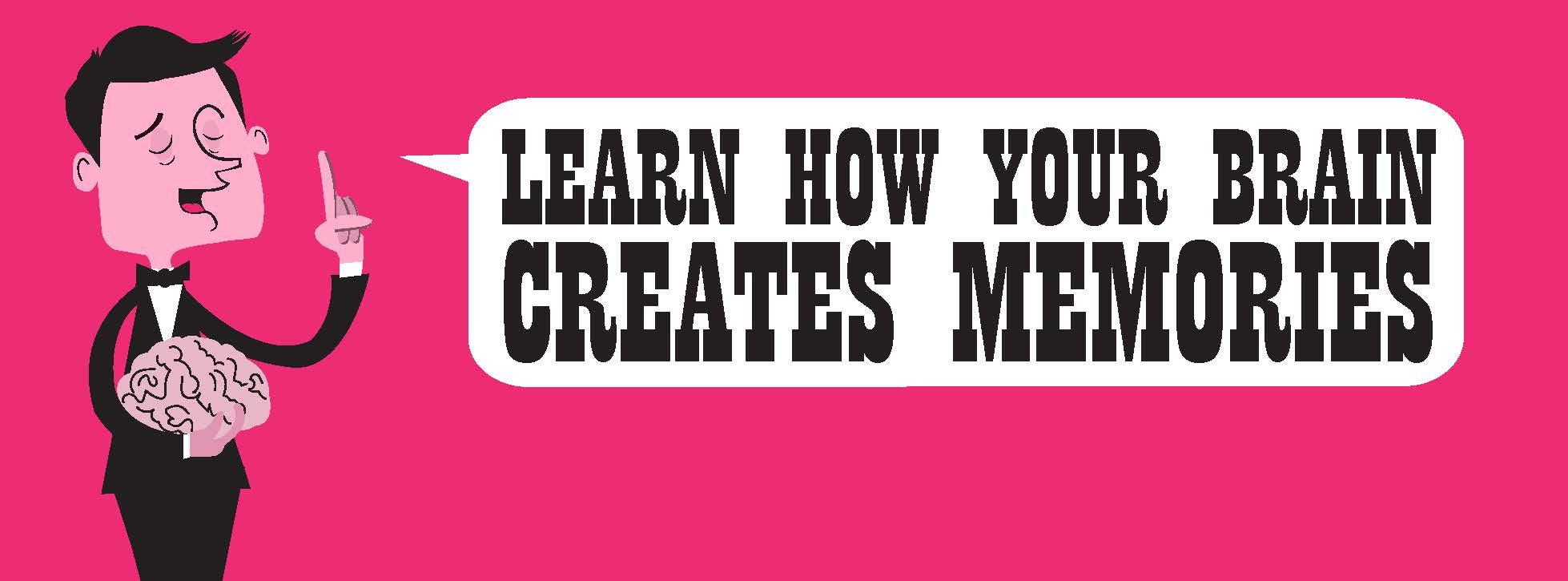
Itzak Fried, MD, PhD, talks to John Hamilton of NPR News about how our brains create memories. Researchers are exploring special neurons in the brain’s medial temporal lobe, hoping to unlock how the brain creates memories of experience.
Continue reading »
Cancer Care has put together a well-rounded list of workshops and podcasts for brain cancer patients, families and caregivers here >> http://www.cancercare.org/diagnosis/brain_cancer
Researchers are exploring brain networks as a way to aid patients with neurological disabilities.
Continue reading »

Participate in a live, interactive webinar on Adult Brain Tumors: From Diagnosis to Recovery.
Continue reading »
Researchers in Toronto have designed an app for tablets that offers education, recovery planning and daily self-assessment functions. Engaging patients in this way may enhance recovery while at the same time help decrease charting and auditing by staff. More here >> http://www.mhealthnews.com/news/can-app-help-patients-recover-surgery
A new study shows that patients are not always offered minimally invasive surgery and more often than not undergo more expensive, higher risk surgeries. In looking at a sample of 80,000 surgeries, the offer of minimally invasive surgery varied greatly depending on the procedure, hospital or surgeon.
Continue reading »

The brain is an extremely complex organ which controls not only our bodies, but also provides us with our sense of self. Despite decades of research, the human brain remains largely a mystery to even the scientists and doctors who study it.
Continue reading »
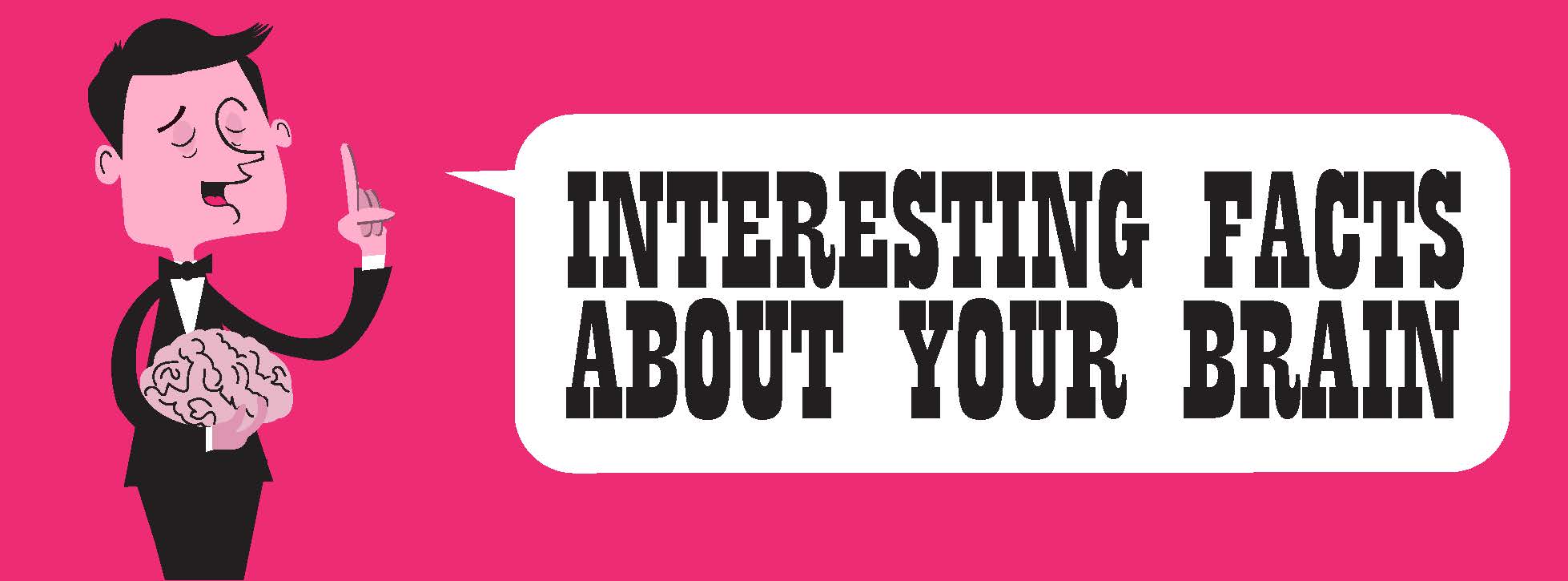
Ever wonder what your brain feels like? How much information capacity it possesses? Or how much blood your brain uses?
Watch the video for answers to these and more questions about your beautiful brain! >> http://uk.businessinsider.com/amazing-facts-about-your-brain-2015-4
Listen to excerpts from Dr. Marsh’s new memoir, ‘Do No Harm,’ on Fresh Air with Terry Gross. They explore the complexities and beauty of the brains including the topic of surgery for brain tumors and other conditions. Listen here >> http://www.npr.org/sections/health-shots/2015/05/26/409719011/a-neurosurgeon-reflects-on-the-awe-and-mystery-of-the-brain
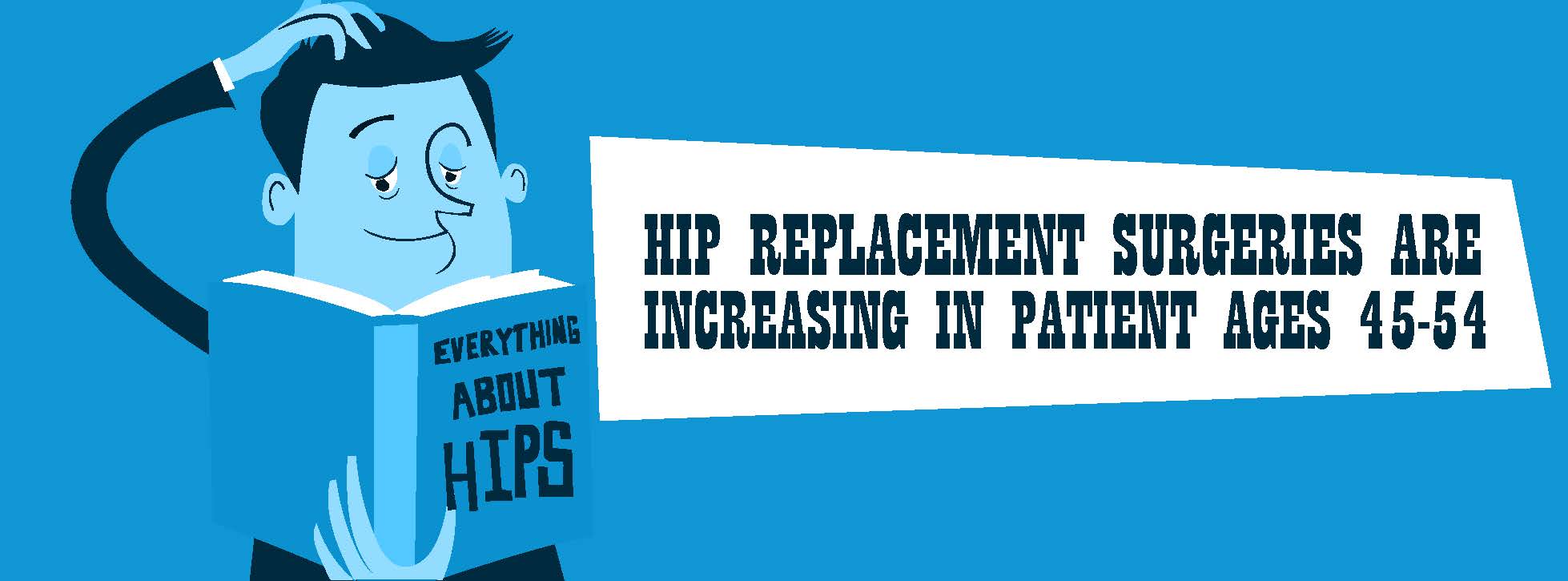
A new study shows that total hip replacement surgeries, also known as hip arthroplasty, are increasing in patients ages 45-54. Even hip replacements for patients in their teens and 20s are becoming more common place; however, alternative treatments are often preferred for younger patients before surgery is considered.
Continue reading »

At Brainlab.org, we firmly believe that being well-informed can help you feel more confident and relaxed as a patient. Knowing what to expect and what questions to ask may help you before you undergo a procedure, especially invasive procedures like a hip replacement.
Continue reading »

Are you part of the baby boomer generation? Are you the caretaker of an aging parent or older adult in your family? Check out the live streaming White House Conference on Aging on July 13, 2015. There are many ways to get involved and participate! http://www.whitehouseconferenceonaging.gov/
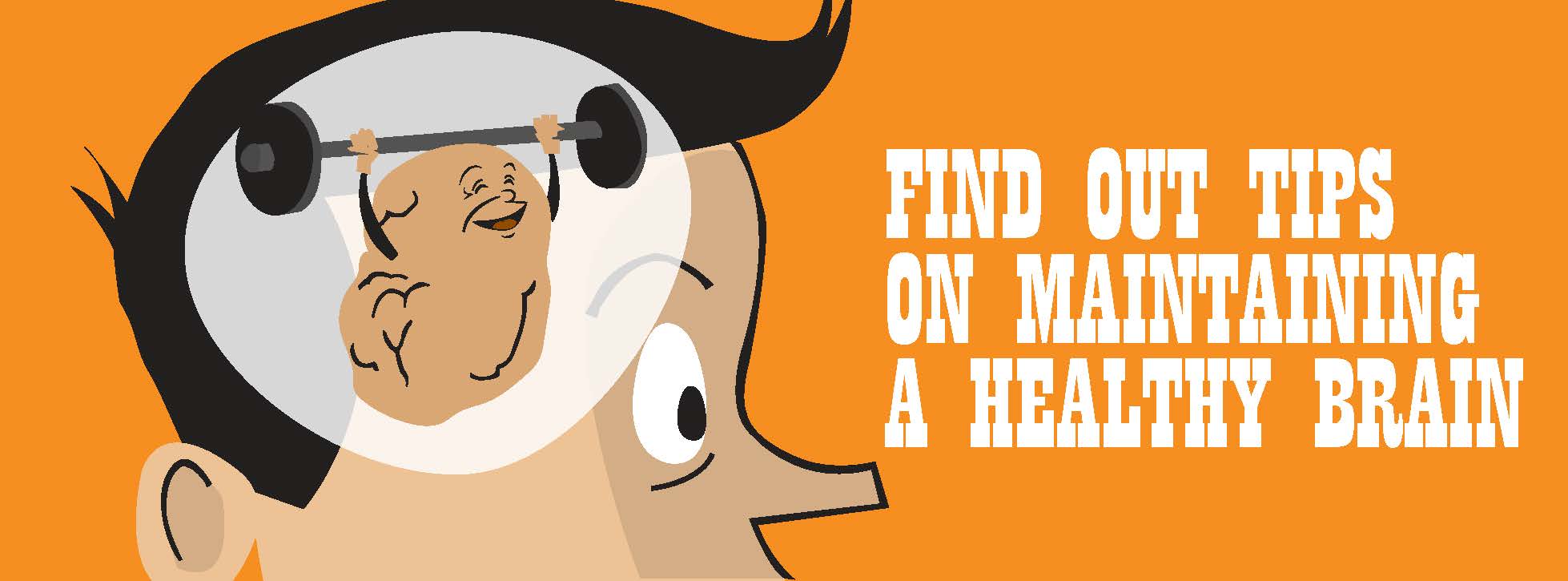
The White House Conference on Aging (WHCOA) recently hosted a webinar, co-sponsored by the Alzheimer’s Association, which focused on ‘Healthy Brains’, presenting research on cognitive health and providing tips on maintaining a healthy brain.
Continue reading »
When surgery and chemotherapy produced mediocre results in treating Robert Townsend’s glioblastoma, he turned to a new device called the NovoTTF-100A system. This device is placed directly on the scalp and kills tumor cells as they are dividing by interrupting the process of mitosis. Learn more about this experimental treatment here >> http://www.foxnews.com/health/2015/02/25/new-device-shows-promise-in-treating-deadly-brain-tumors/
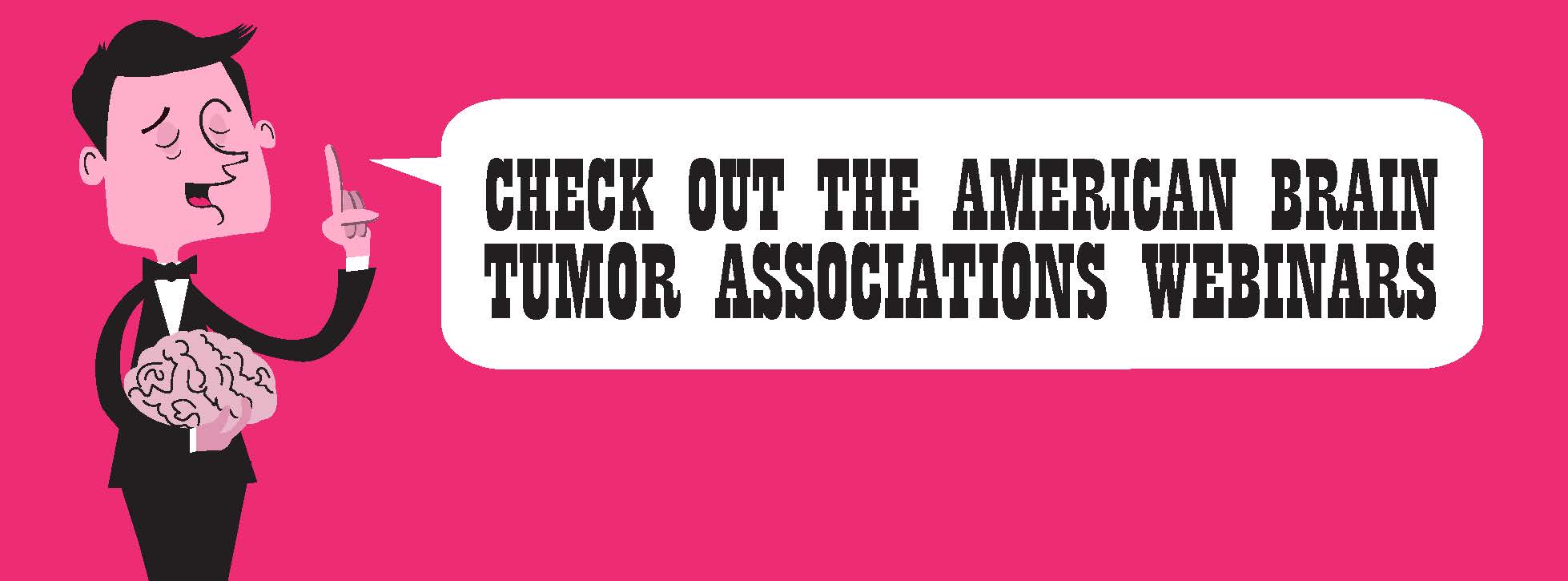
Want to learn about financial and legal resources for brain tumor patients? How about molecular testing and how it’s improving brain tumor diagnosis? The American Brain Tumor Association has a great page on their website called “Anytime Learning” where they post webinars that address many different topics related to brain tumors. Check out their site here >> http://www.abta.org/brain-tumor-information/anytime-learning/

Always wear sunscreen to protect against skin cancer. The World Health Organization (WHO) reports that, globally, between two and three million non-melanoma skin cancers occur each year.
Continue reading »
Professor Steve Gill, M.D. in Bristol, England is developing an experimental way to treat brain tumors using 3D printing and catheters. The novel, non-clinically tested treatment involves implanting catheters to deliver chemotherapy drugs directly to the brain. See the BBC report here:
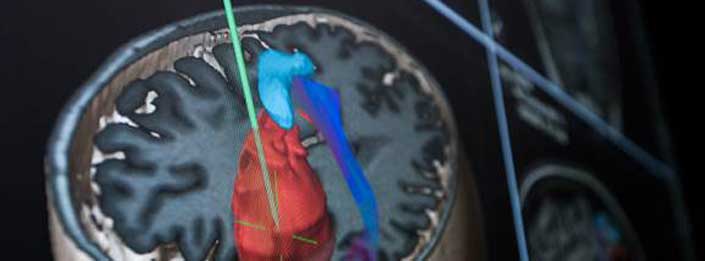
Beau Biden, son of Vice President Joe Biden, recently lost his battle with brain cancer. While it is uncertain which type of tumor took Biden’s life, it is believed to be a glioblastoma multiforme (GBM).
Continue reading »

For someone who just had knee surgery, getting around the house can be difficult. If you have volunteered to help someone you know during this recovery period, here are some helpful tips to help put your loved one at ease.
http://www.healthline.com/health-slideshow/total-knee-replacement-surgery-caring-for
Surgeons use a combination of their training, expertise and tools like image guided surgery to successfully remove brain tumors. Now, doctors at Fred Hutchinson Cancer Center in Seattle have developed another potentially viable technique using special tumor paint that makes cancerous tissue glow when exposed to near-infrared light. Lighting the way >> http://news.discovery.com/tech/tumor-paint-glows-for-surgery-150408.htm
June is Men’s Health Month and today begins Men’s Health Week, which have been developed to help raise awareness of preventable health problems and encourage early detection and treatment of disease.
Continue reading »
Adding a chief patient experience officer (CXO) to hospitals’ executive staff is a growing trend. According to a recent Catalyst survey, 62% of respondents said that visible support from leadership was the top factor behind successful patient experience campaigns. Learn more here >> http://www.advisory.com/daily-briefing/2014/03/25/hospitals-put-patient-experience-officers-in-the-c-suite
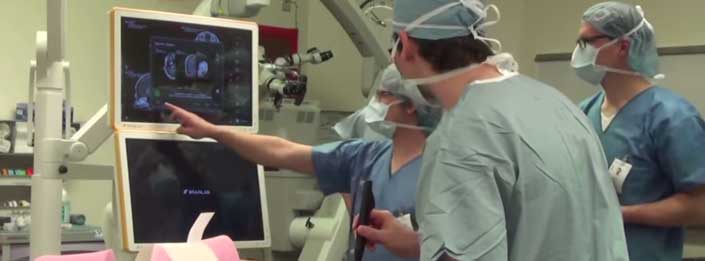
When Steve Mores, drummer for the band The Prairie Surfers, was diagnosed with an acoustic neuroma brain tumor, his team of Northwestern Memorial Hospital doctors turned to Adaptive Hybrid Surgery (AHS) technology for his challenging tumor removal surgery. Thanks to a successful surgery, Steve’s symptoms of partial hearing loss, extreme nausea, and imbalance are mostly gone, allowing him to return to his passion of drumming. He was the second of seven patients to undergo AHS, which recently received FDA approval. Learn more about Steve’s story and AHS here >> http://wgntv.com/2015/01/25/adaptive-hybrid-surgery/
Research published in May 2015 in Cell explores how thinking can actually fuel growth of some brain tumors. The study concludes that activity in the cerebral cortex of the brain affects high-grade gliomas, a type of tumor that makes up the majority of all malignant tumors. Listen or read about the study here >> http://www.npr.org/blogs/health/2015/04/23/401723235/thoughts-can-fuel-some-deadly-brain-cancers
Link to scientific abstract from Cell >> http://www.cell.com/cell/abstract/S0092-8674(15)00429-8
In April of 2015, the U.S. government began using patient satisfaction surveys to provide a five-star rating system for hospitals. This information is available to consumers on Medicare’s Hospital Compare website. Patient satisfaction is becoming increasingly important to hospitals as it affects their Medicare reimbursement rates.
Interested in seeing how your hospital measures up? >> http://www.medicare.gov/hospitalcompare/search.html?AspxAutoDetectCookieSupport=1
When you have a brain tumor, your gray matter is both more alive and more in jeopardy than ever. Pinterest can offer you a great place to build your own boards that pay homage to your beautiful brain. Here is a page that celebrates the brain.
https://www.pinterest.com/sarahalisaw/brain-tumor-awareness/
As humans we can identify galaxies light years away, we can study particles smaller than an atom, but we still haven’t unlocked the mystery of the three pounds of matter between our ears,” said President Barack Obama in 2013 as he unveiled the BRAIN initiative, a collaborative effort to map the human brain and better understand it.
Continue reading »
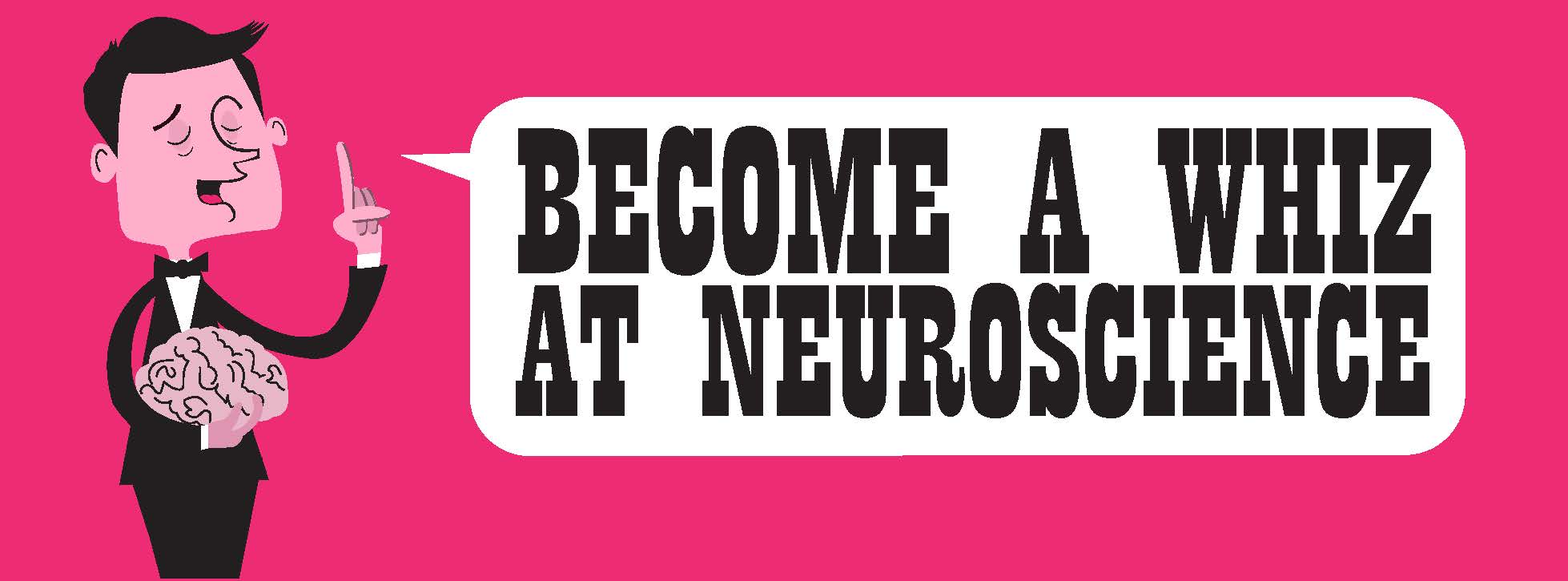
Want to become a whiz at neuroscience? You can test your skills and educate yourself while competing with people worldwide on the latest craze, QuizUp. Try the neuroscience category in the QuizUp app. Download here >> https://www.quizup.com/en
You can see cutting edge Brainlab software on our Pinterest boards >>
Brainlab sponsored BT5K Chicago, part of the American Brain Tumor Association (ABTA) 5K series, to help brain tumor research, patient programs and support services. Over 4,500 guests joined The Disrupters and Brainlab staff at our booth to show their support for ABTA and Brain Tumor Awareness Month, which is the recognized during the month of May.
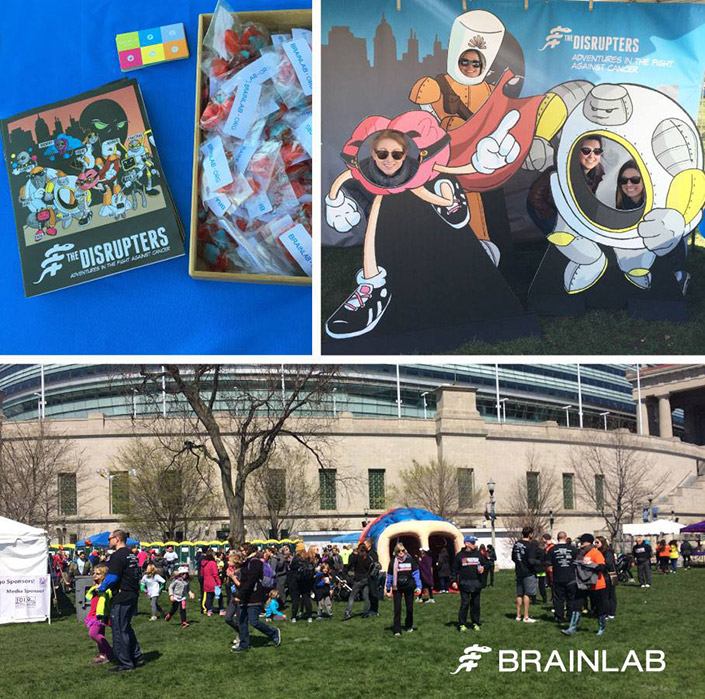
Eat better to feel better. This is a common saying people say to remind themselves that what they put in their body affects how they feel on a day to day basis. But did you know following a healthier diet can help brain tumor patients heal and recover more readily while going through treatment? Find out the seven keys to a healthier diet here:
http://www.abta.org/brain-tumor-treatment/side-effects/diet-nutrition.html
When you have a brain tumor, your gray matter is both more alive and more in jeopardy than ever. Pinterest can offer you a great place to build your own boards that pay homage to your beautiful brain. Here is a page that celebrates the brain.

You can see cutting edge Brainlab software on our Pinterest boards >> https://www.pinterest.com/brainlabvisuals/
Did you know that when you learn, you actually change the structure of your brain? Your brain is an amazing organ and sharing its beauty with your kids can be a wonderful break. Find out more about your amazing brain at:
http://kids.nationalgeographic.com/explore/science/your-amazing-brain/
The American National Brain Tumor Society will ‘Head to the Hill’ in Washington, DC for an annual advocacy event and citizens are encouraged to join the event. Head To The Hill has become a powerful vehicle to ensure the voice of the brain tumor community is being heard on Capitol Hill. You can register on the National Brain Tumor Society website here >> http://braintumor.org/advocate-for-change/advocates-in-action/head-to-the-hill/
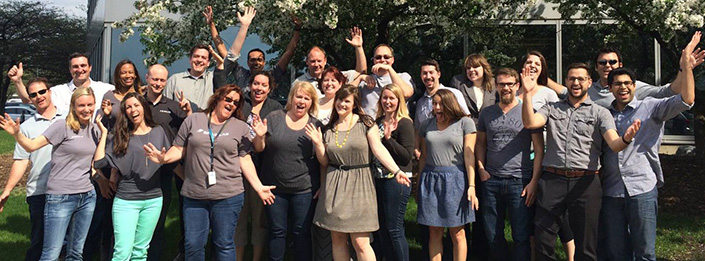
Gray is the color of Brain Tumor Awareness month. By wearing gray in the month of May, you show your support to all those fighting a brain cancer journey. Brainlab and Brainlab.org will celebrate Gray Day at Work on May 18. Come back to see how we support everyone battling brain cancer. The American Brain Tumor Association offers gray bracelets here >> ABTA Shop
Join people from all over the world for the 9th Walk Around the World for Brain Tumors. The idea is for people to join sponsored or non-sponsored walks anytime throughout the entire year and symbolically dedicate their miles to the World Walk. The target goal for the International Brain Tumor Alliance walk is to circle the earth at the equator, which is 24,901 miles or 40,075 kilometers.
Continue reading »

Take a walk through this interactive animation of total knee replacement surgery. This virtual procedure is interesting on your own or with your kids or grandkids >> http://www.edheads.org/activities/knee/

The cancer treatment of the future will be increasingly a combination of different treatments. Brainlab is investing greatly in software because it can play a key role in analyzing patient data and building personalized treatment programs.
Continue reading »
Steven Keating is a doctoral student at Massachusetts Institute of Technology (M.I.T.), who collected and researched his own patient data, leading to the discovery of his own brain tumor. His story is featured in The New York Times here >> http://www.nytimes.com/2015/04/01/technology/the-healing-power-of-your-own-medical-data.html
Continue reading »
Brainlab.org employees took part in the BT5K Breakthrough for Brain Tumors 2015 Run & Walk at the Soldier Field Stadium Green in Chicago on April 26. Taking place in nine cities across the United States, BT5K is the American Brain Tumor Association’s (ABTA) national fundraising event and the Brainlab.org team of X ran and walked to help raise funds for the ABTA’s educational, research and patient resource activities. #breakthrough. Learn more about the ABTA BT5K here >> http://hope.abta.org/site/PageServer?pagename=bt5k_splash
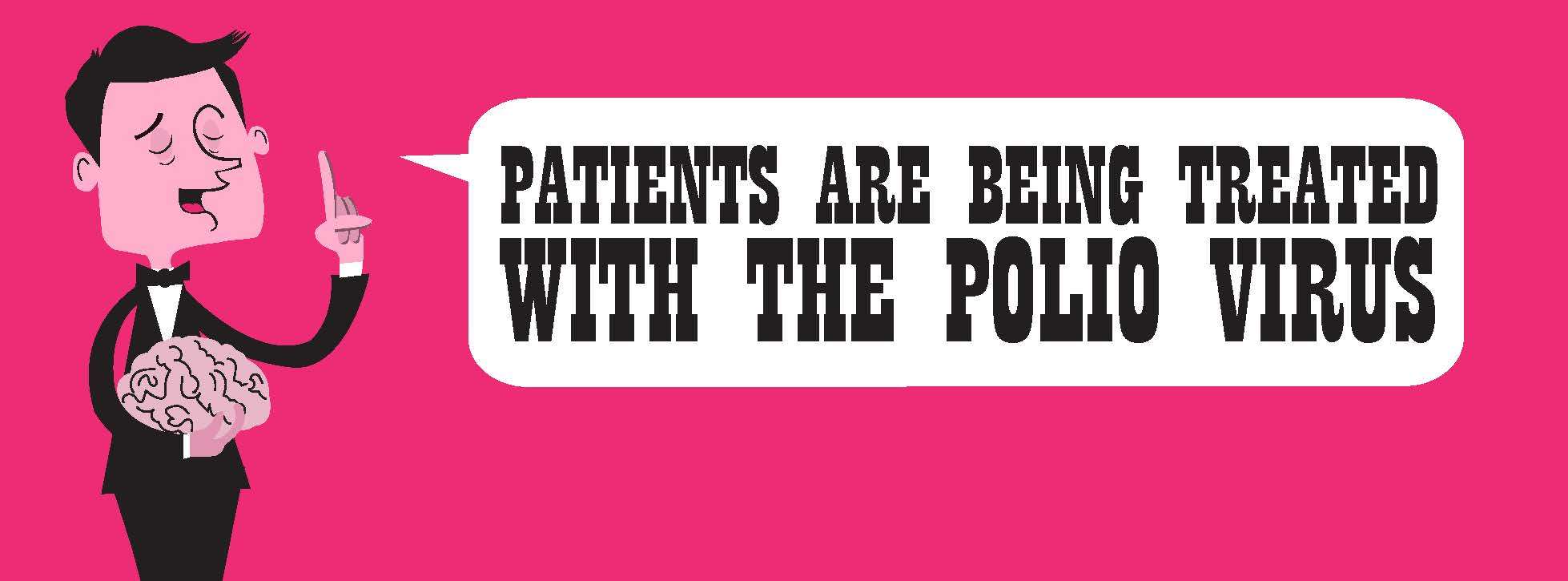
On March 29, the renowned news show 60 Minutes aired an in-depth feature on patients involved in a clinical trial at Duke University. The patients are being treated with a re-engineered polio virus designed to kill Glioblastoma multiforme cancer cells. If you did not get a chance to view the episode, you can watch it in its entirety here >> http://www.cbsnews.com/news/polio-cancer-treatment-duke-university-60-minutes-scott-pelley/
There was a follow-up story in Forbes about the study which can be read here >> http://www.forbes.com/sites/arleneweintraub/2015/03/30/heres-what-60-minutes-didnt-tell-you-about-the-miracle-glioblastoma-treatment/
We have lost a wonderful neurosurgeon, collaborator and friend. Andrew (Andy) Parsa, M.D., Ph.D., a world renowned neurosurgeon and Chairman of Neurological Surgery at Northwestern University’s Feinberg School of Medicine passed away suddenly on Monday, April 13, 2015.
Continue reading »
We’ve put our brains together, curating the web to bring you the best in gray matters. Drop us a line at marcomm@brainlab.com if you find something that brought you hope, desire, motivation or a new outlook on your diagnosis. We’ll try to include it here in the Brainfood Blog.
While Brainlab has expanded to fight cancers and other conditions of the body, we were founded on helping patients with brain tumors and lesions. This cause is very important to Brainlab and Brainlab.org and our dedication is fierce.
Continue reading »

Dr. Larry Page is a Doctor of Osteopathic Medicine (D.O. or DO) currently based in Tulsa, Oklahoma. The Brainlab.org team interviews Dr. Page about his background, practice, and thoughts on patient education.
Continue reading »

People often ask their doctor if there is any truth or reason behind why their joints hurt right before and when the weather changes. The idea that you can ‘feel it in your bones’ has been researched. While there is little ‘hard’ data to prove that weather affects your joints, there are some commonly held beliefs and theories about the potential reasons why, when the weather turns, your joints suffer.
There are many theories about why this happens and even some research published about it in the journal Pain. Many clinicians agree that changes in barometric pressure, or air pressure, can potentially cause an increase in joint pain.
Continue reading »
Over the past 24 years, Brainlab, a privately held medical company, has developed an innovative portfolio for the safe and effective delivery of therapies and implantable devices across a variety of medical areas – from neurosurgery and oncology to orthopedics, ear/nose/throat (ENT), cranio-maxillofacial (CMF), spine, and trauma.
Continue reading »